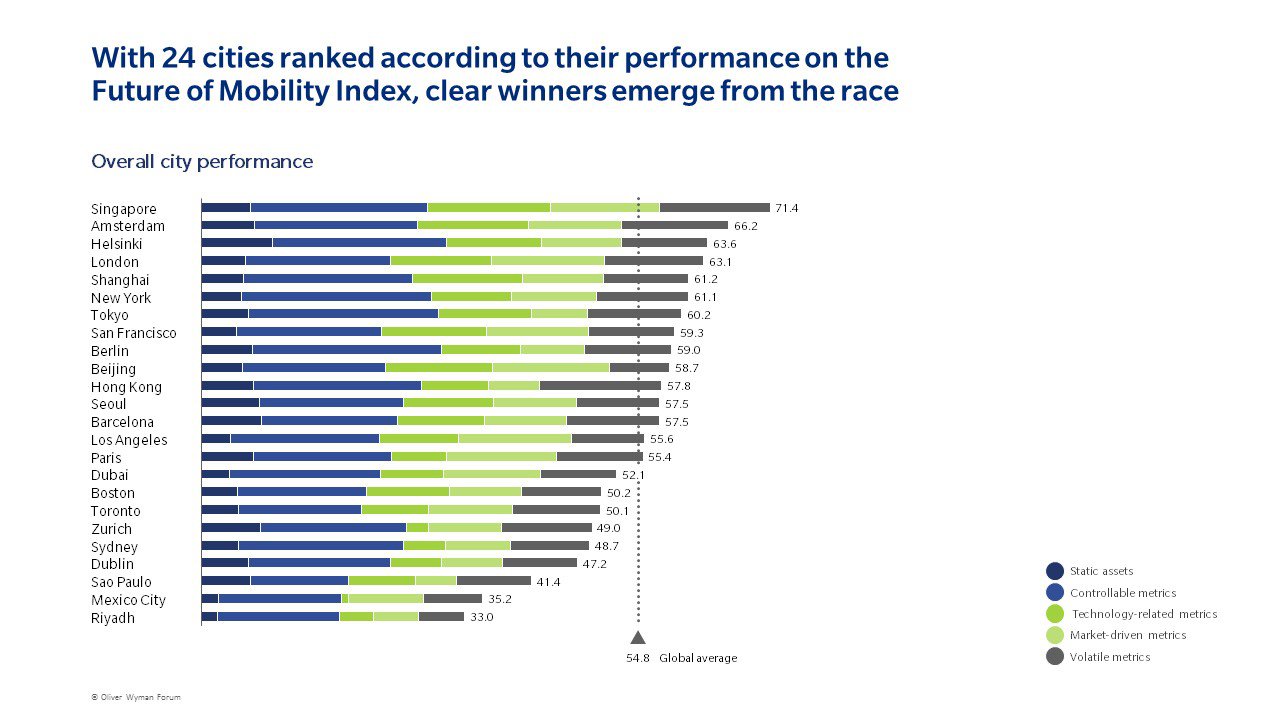(This article originally appeared on Forbes.)
A lot of what will determine the shape of the new mobility will come down to personal preferences: choosing ride-hailing over mass transit; shopping on the internet rather than in a store; working remotely rather than commuting; opting for an electric vehicle over internal combustion. Individually, they seem trivial, but taken together these decisions will upend legacy mobility systems in cities across the globe over the next several decades.
How well cities can cope with this coming mobility revolution will be critical to their ability to grow and attract businesses and talent. To help cities evaluate how prepared they are to nurture the new mobility and use it to their economic advantage, the Oliver Wyman Forum is developing the Future Mobility Competitiveness Index (FMCI), a predictive metric of a city’s ability to compete and distinguish itself using the new technologies in a seamless, integrated network. The Forum is conducting its research with Alexandre Bayen, the director of the Institute of Transportation Studies at the University of California at Berkeley.
Here’s what our index found: Singapore, Amsterdam, and Helsinki are the cities most prepared for the new mobility. While they approach mobility with very different assets and facing different demands, all five have infrastructure from past investments and a history of sustained investment in that infrastructure and new technologies, a pattern of rapid technology adoption, an engaged private sector, and forward-looking policies that aim for managed growth. The index criteria include each city’s infrastructure and transport network; fleet and traffic services; availability and penetration of shared and multimodal services; preparation for green and autonomous vehicles; connectivity through access to WiFi and experimental technologies like fifth generation mobile communications (5G); and overall livability in terms of traffic noise and air quality, including greenhouse gas emissions. Here is the complete list of 24 cities and their score).

To understand why these cities were selected, please click here to read the full article on Forbes.

